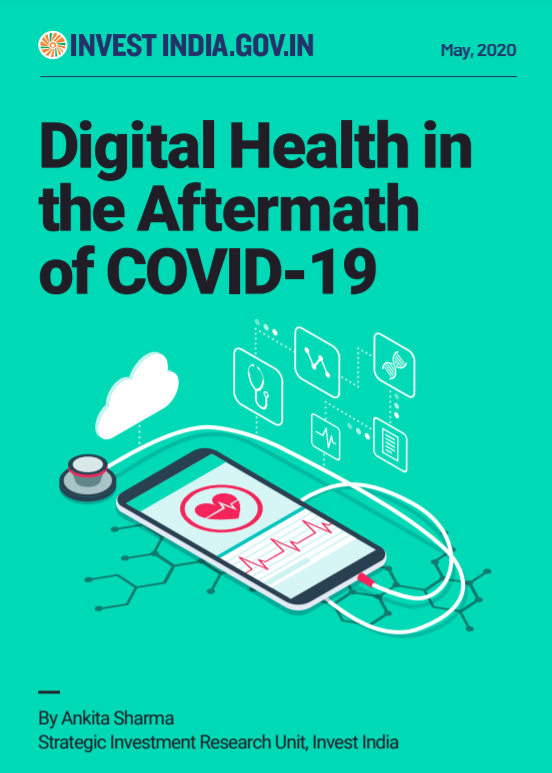
Digital Health: A Sunshine Industry
The COVID-19 pandemic has brought to the forefront the critical need for cutting-edge technological tools and innovation in the areas of public health, medicine and wellness. It has reopened the realm of ‘digital health’ in the policy and public discourse, with consumers increasingly looking at the wide canvas of wearable gadgets, mobile health apps and Artificial Intelligence (AI), as well as robotic carriers, sensors and to electronic records.
As the health responses to the pandemic are strengthened, there is a tangible shift in the erstwhile focus of apps and hardware from lifestyle enhancement to medical and emergency care. This may be possible with new innovations in hardware and software such as sensors and other potentially life-saving functionalities.
It can safely be said that in the run-up to the future, holistic technology and data-driven overhaul of present-day digital tools is in the offering, allowing patients to have greater control over their health and medical outcomes.
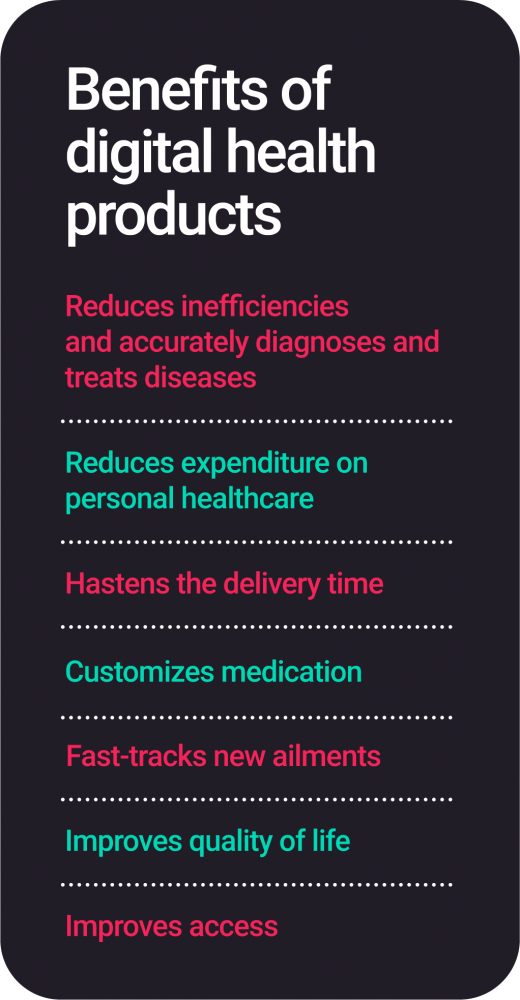
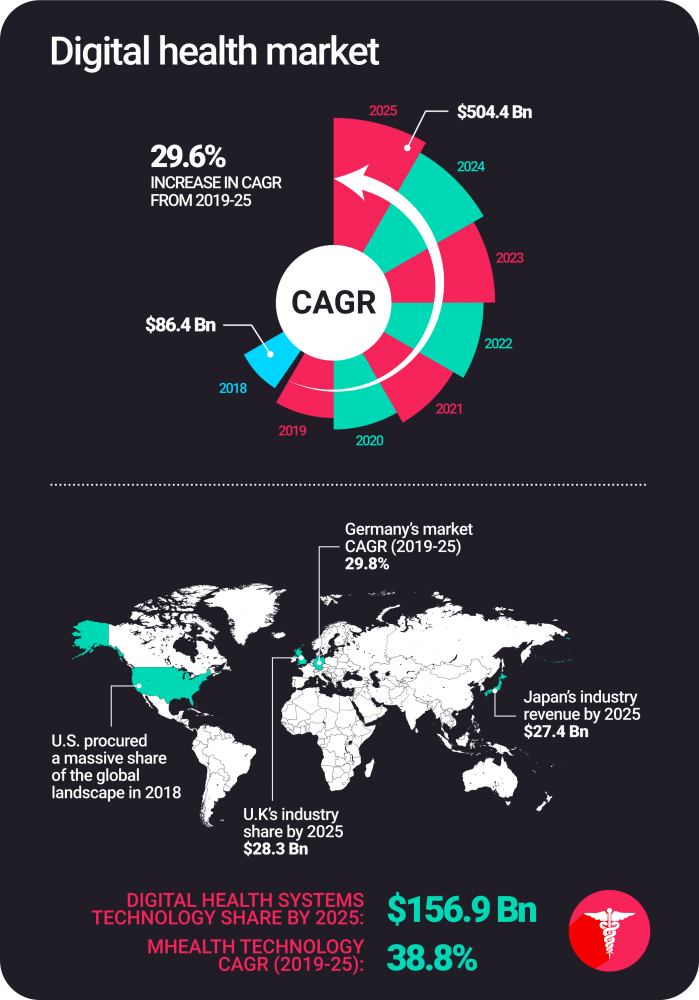
Experts suggest that the digital health market across the world is likely to witness a massive spike both from the demand and supply sides. Already, digital healthcare companies are assessing capacities and avenues, pursuing evidence-based innovating and developing new technologies across the board, including diagnostic and telemedicine tools, cellphone apps for on fitness, well-being, medical and healthcare, and data-driven software. This impending revolution in the healthcare domain directly corresponds with and builds on the rise in ownership of smartphones and tablets, a sustained push by governments towards digital economies, and the rise in lifestyle-related health concerns.
In India, the government, under the leadership of Prime Minister Narendra Modi, has been actively promoting digitization of the economy to unleash and harness the nation’s collective entrepreneurial spirit. The PM has highlighted the potential of telemedicine in the country. He said, “We are already seeing several consultations without actually going to the clinic or hospital. Again, this is a positive sign. Can we think of business models to help further telemedicine across the world?”
On this front, several companies have come to the forefront in the recent past, with a wide range of tech-driven digital healthcare tools and products. The canvas of national and global funding opportunities to these technologies has also expanded widely. For instance, some media and public reports suggest that Practo Technologies Pvt. Ltd. has raised $55 mn in Series D round of funding led by Tencent Holdings Ltd., a Chinese investment holding company. A UK-based development finance institution, CDC, has funded $48 mn in Narayana Hrudayalaya to expand affordable treatment in India. Similarly, Gamma Group, a UAE-based firm is finalizing plans for investing around $449.68 mn. Other prominent digital health companies that have raised money in India include M-fine ($23 mn), from four founders of Myntra, Stellaris Venture Partners and Prime Venture Partners, and SBI Investment, SBI Ven Capital and Beenext (all from Japan), and 1mg technologies whose latest Series-C round of $15 mn came from a group of investors led by HBM Healthcare Investments.
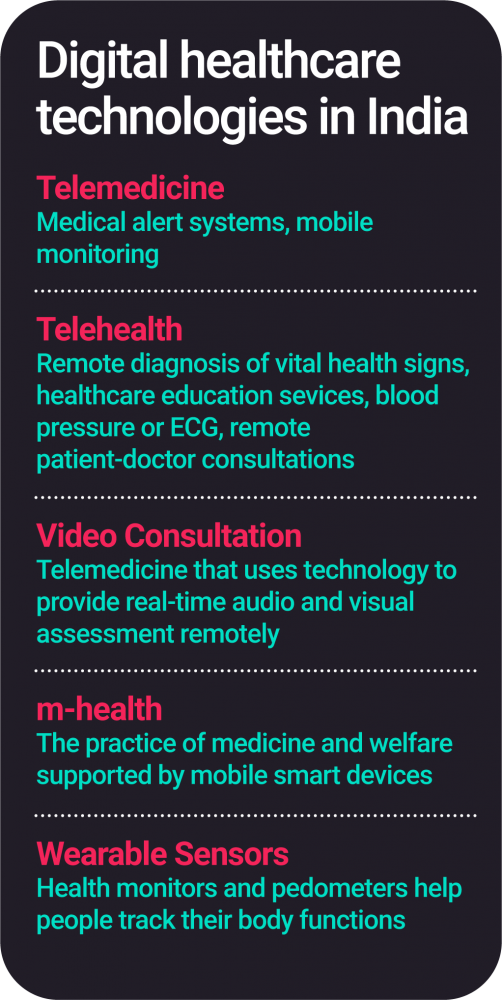
At the same time, India’s medical industry has also been backing and accepting digital technologies developed by both public and private players. Supported by the government-led social welfare initiatives such as Aadhaar and Digital India, such technologies and tools have attracted funding support as well as helped foster an ecosystem of digital health start-ups.
However, faced with increasing demand, stakeholders in this space have been grappling with issues such as inadequate digital infrastructure, limited human resources and prospects to scale-up their initiatives and products. All this, while ensuring affordability of their products for the customer, addressing the cost burden on consumers, increasing accessibility to their products and providing quality service.
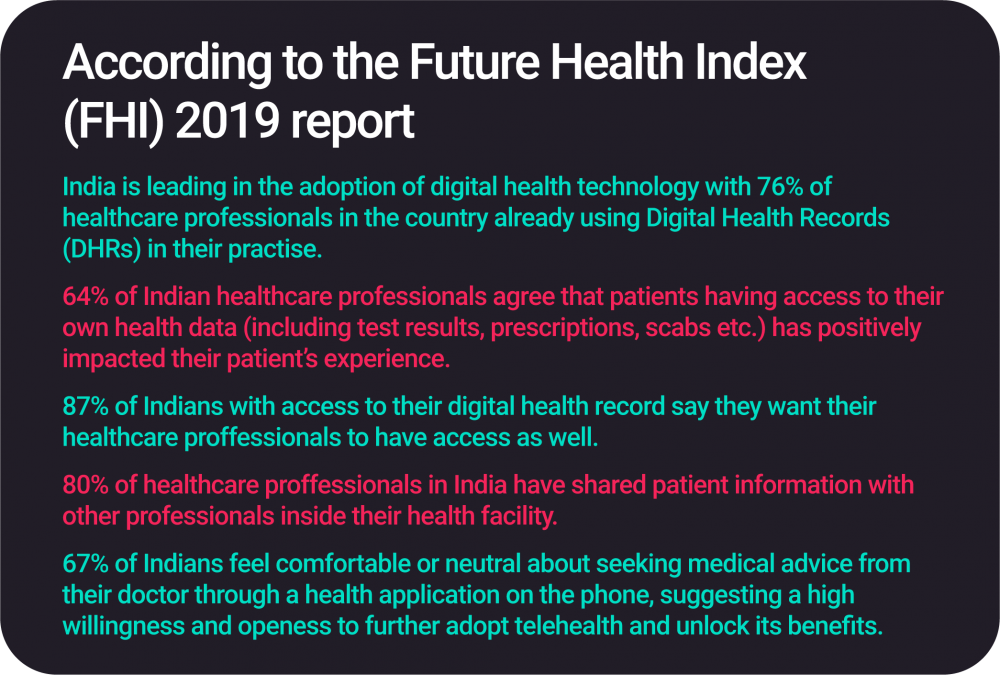
Lessons from COVID-19 Pandemic
Some of the key learnings from the global responses to the ongoing COVID-19 pandemic are:
- With more than 200 countries under lockdown, governments, healthcare providers, civil society and even citizens across the globe are increasingly shifting to digital media and online space. Responding to the extremely restricted physical access to socio-economic infrastructure, facilities and services amid the pandemic, many stakeholders in the healthcare are looking at flattening the spread of COVID-19 through community-driven contact-tracing technologies. These are also aimed at enabling citizens to adopt and use digital tools and services to receive information and seek social and medical assistance and support vis-à-vis COVID-19.
- A critical imperative that has emerged for many governments is to support and enable private companies to produce innovative tools en-masse such as facial recognition cameras, drones and sensors that can help gauge a person’s body temperature and medical condition. This is important to allow authorities to quickly identify suspected coronavirus carries and patients, verify their trail and identify and contain anyone with whom they may have come into contact.
- The need for countries to refocus on ‘preventive healthcare’ as the first line of defense has come to the forefront. This is especially relevant for India with such a diverse and massive population, with disproportionate infrastructure that impacts medical responses to pandemics like COVID-19. Recalibrating healthcare strategies to ‘preventive healthcare’ can help improve physical and mental well-being and productivity of communities, families and individuals, and ease the economic burden on disadvantaged and marginalized groups.
Why Preventive Healthcare needs Maximum Attention during COVID-19:
Reason 1
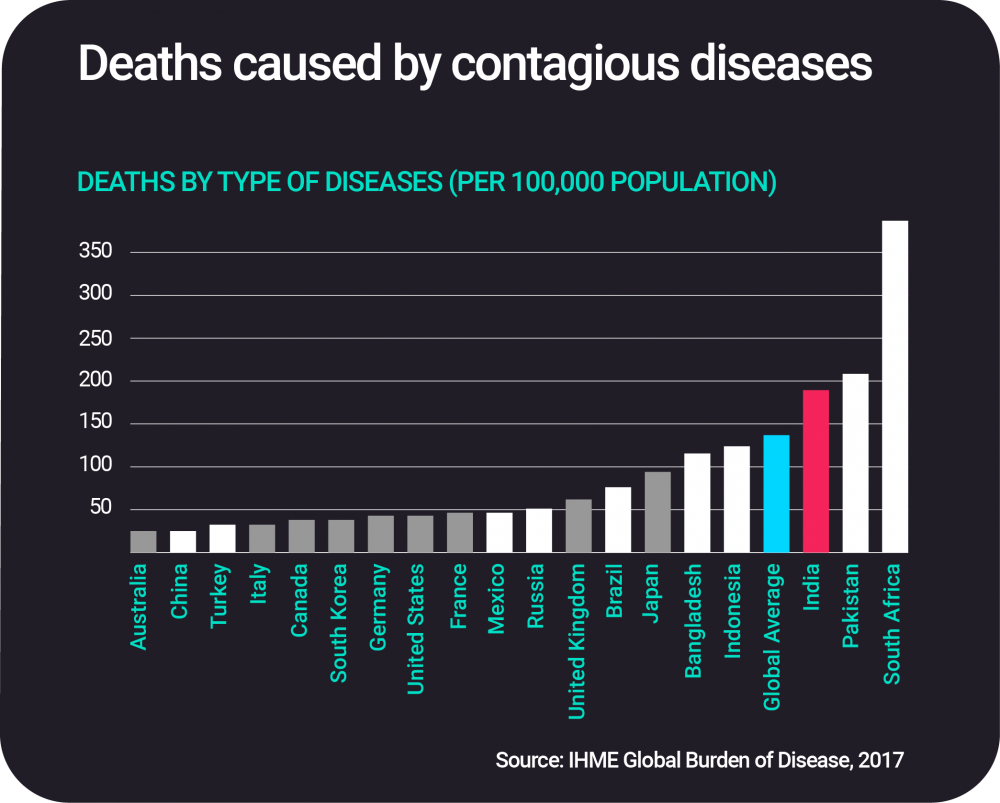
Reason 2
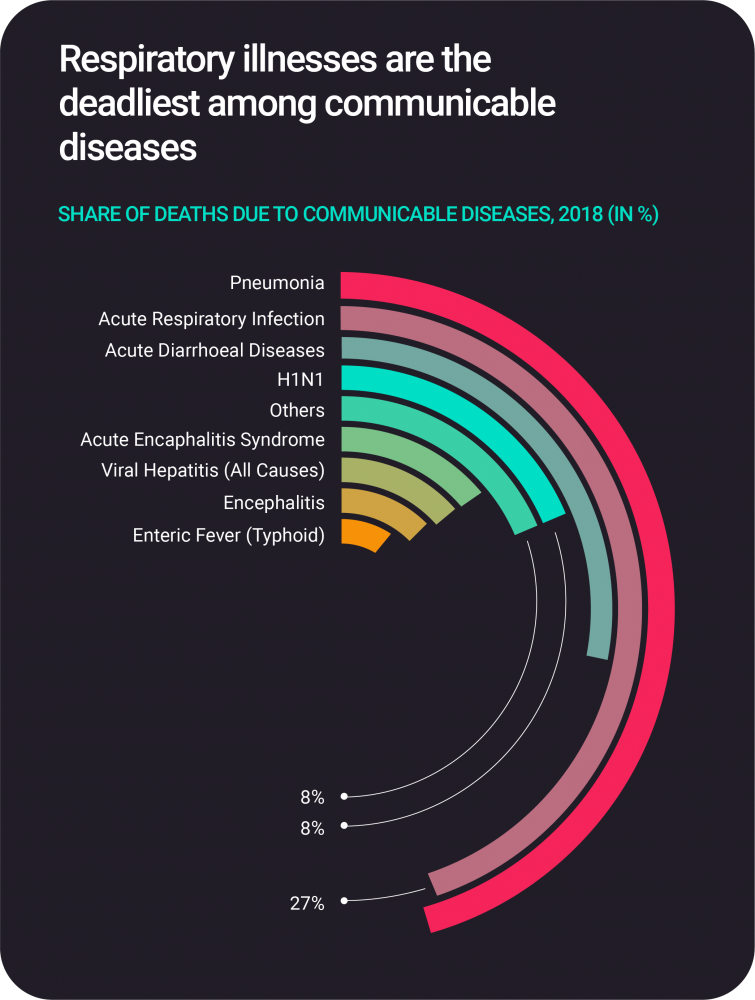
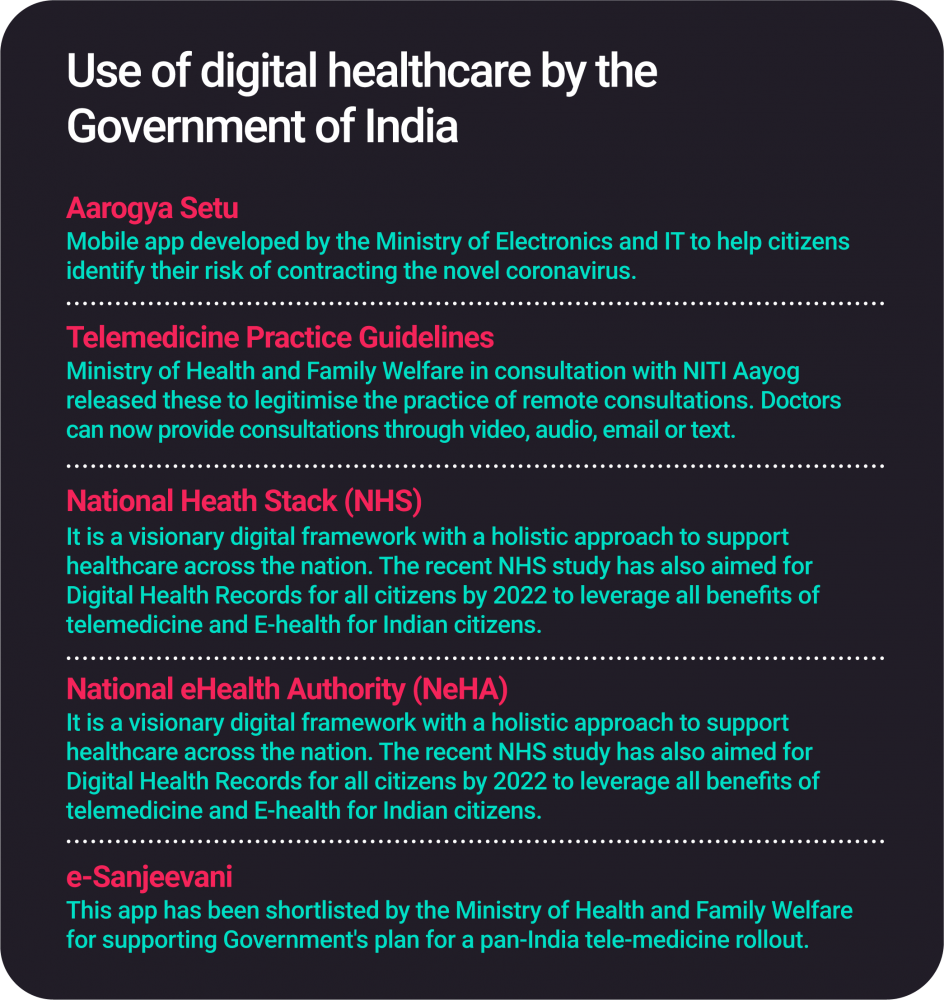
Covid-19 has seriously impacted the way the world fuctions, showing that the health of each member of a society impacts that of the other. And without health, it is not possible to create wealth. The current lockdown to fight the pandemic highlights –
- Our digital infrastructure needs strengthening to deal with the impact of COVID-19 and future public health crises
- Better integration of Artificial Intelligence into the public health response should be a priority
- Analysis of big data relating to citizens' movement, disease transmission patters and health monitoring could be used to aid prevention measures
Trends post-COVID-19
As the world regains its feet after COVID-19, there is likely to be an emphasis on recalibration of public health strategies towards digital tools, especially in the context of preventive healthcare. Most global technology-centered firms are likely to build on the growing consumer appetite on digital health in the context of post COVID-19 safety and care. With cutting-edge biotechnology at its core, this space is likely to emerge as the most profitable for investors, with a massive potential in terms of returns on investment and social welfare.
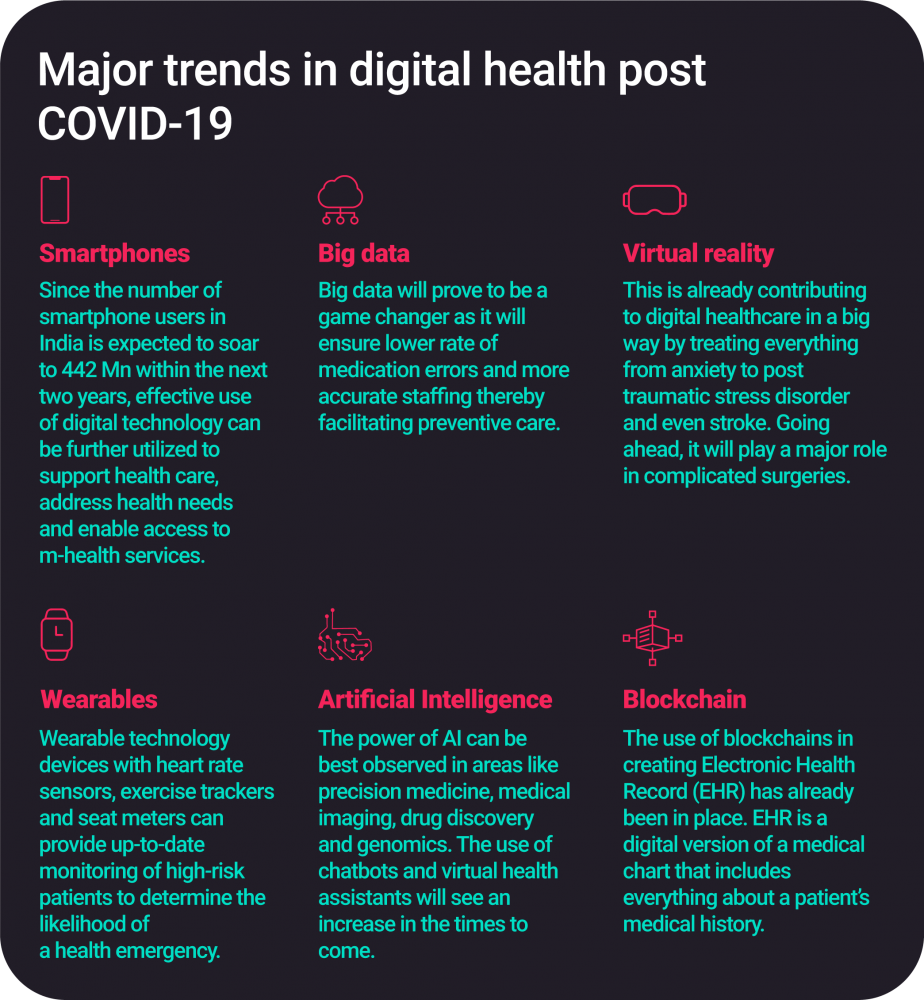
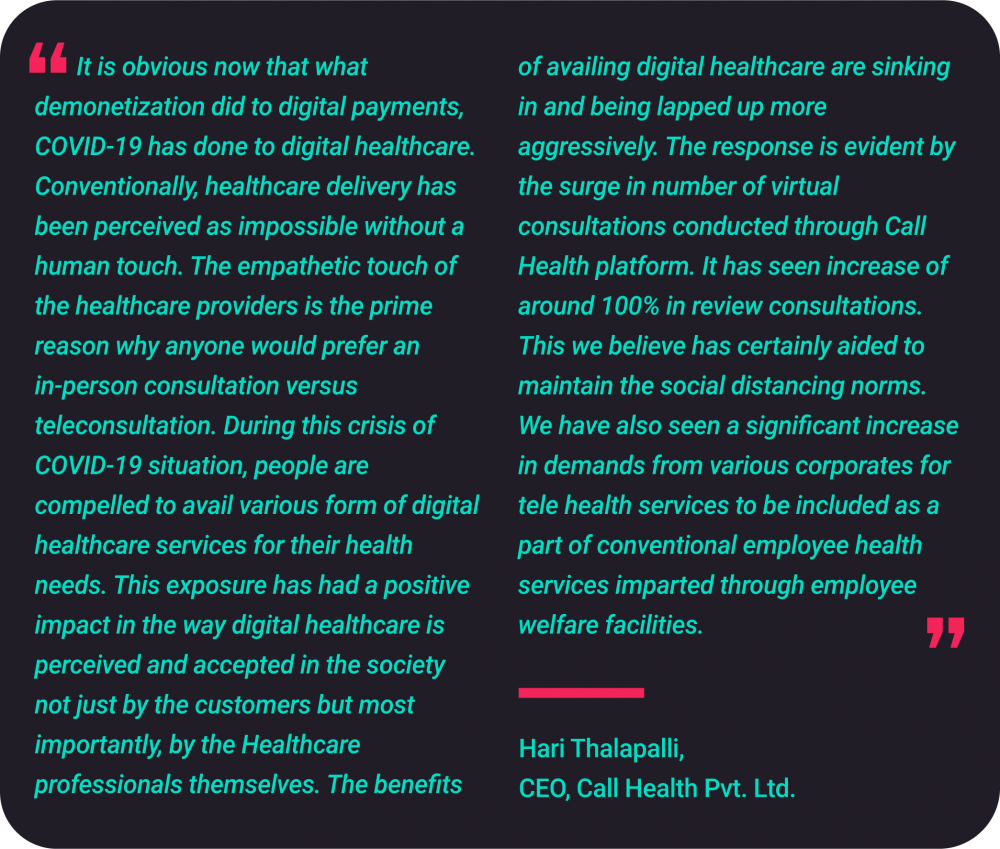
Tools and innovations that facilitate and enable easy-to-use and affordable doctor-patient consultations; provide an accessible interface that connects patients, doctors, diagnostic clinics and pharmacies in a holistic manner will be the products of tomorrow. These could also revolutionize healthcare access and delivery in India’s Tier-2 towns and rural areas, especially for women, vulnerable and marginalized groups, and economically disadvantaged sections of the society. This will be vastly different from the various public-private partnerships on e-health operational right now, as the focus would be on greater accessibility, affordability and quality services.
Research and Markets, for example, says that the global digital health market would be worth $223.7 bn by 2023, while Global Market Insights predicts $379 bn by 2024 and Transparency Market Research foresees by 2025 a digital health market worth $536.6 bn1.
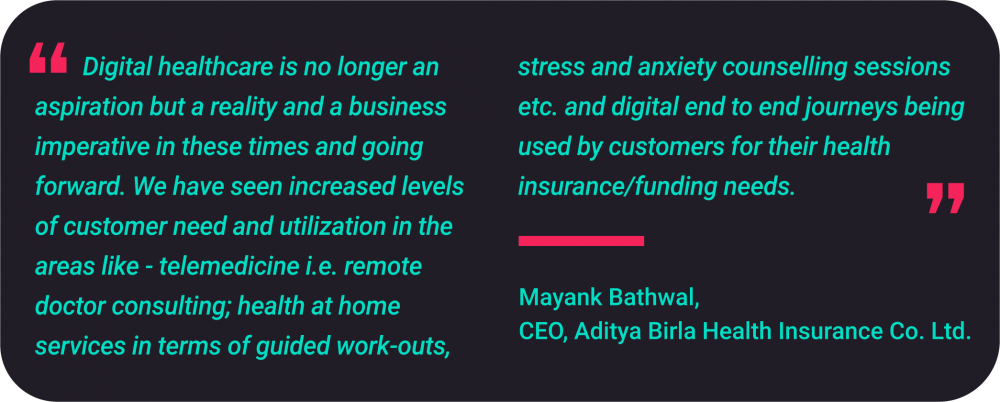
There is also expected to be a greater focus on greater focus on AI, robotics and big data tools and analytics to cement and strengthen India’s new digital infrastructure. In the era of Internet of Things (IoT), integrating medical and healthcare services with AI applications should be a priority for tech providers and policymakers. This may also include mechanisms to enable patient tracking, movement of citizens, identification of viral loads and disease cluster/hotspots, etc. to strengthen monitoring and containment measures. These are areas that may also facilitate the building of big business models that place the consumer at their core of operations.
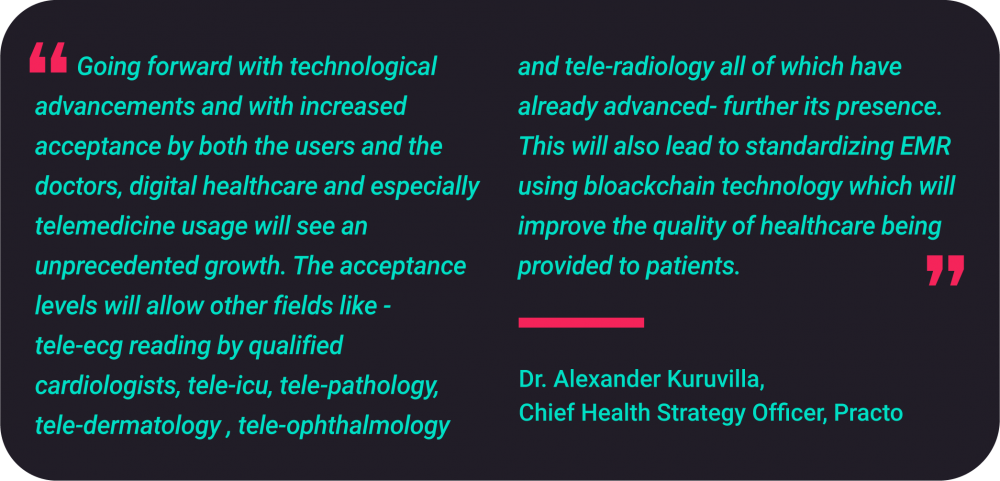
Clearly, the pandemic has unravelled the myriad avenues and opportunities in boosting healthcare and life sciences in India and the world. Paraphrasing the oft-repeated adage, health is wealth, one may safely say, that in the post COVID-19 world, health will still be wealth, with technology as its greatest investment.



